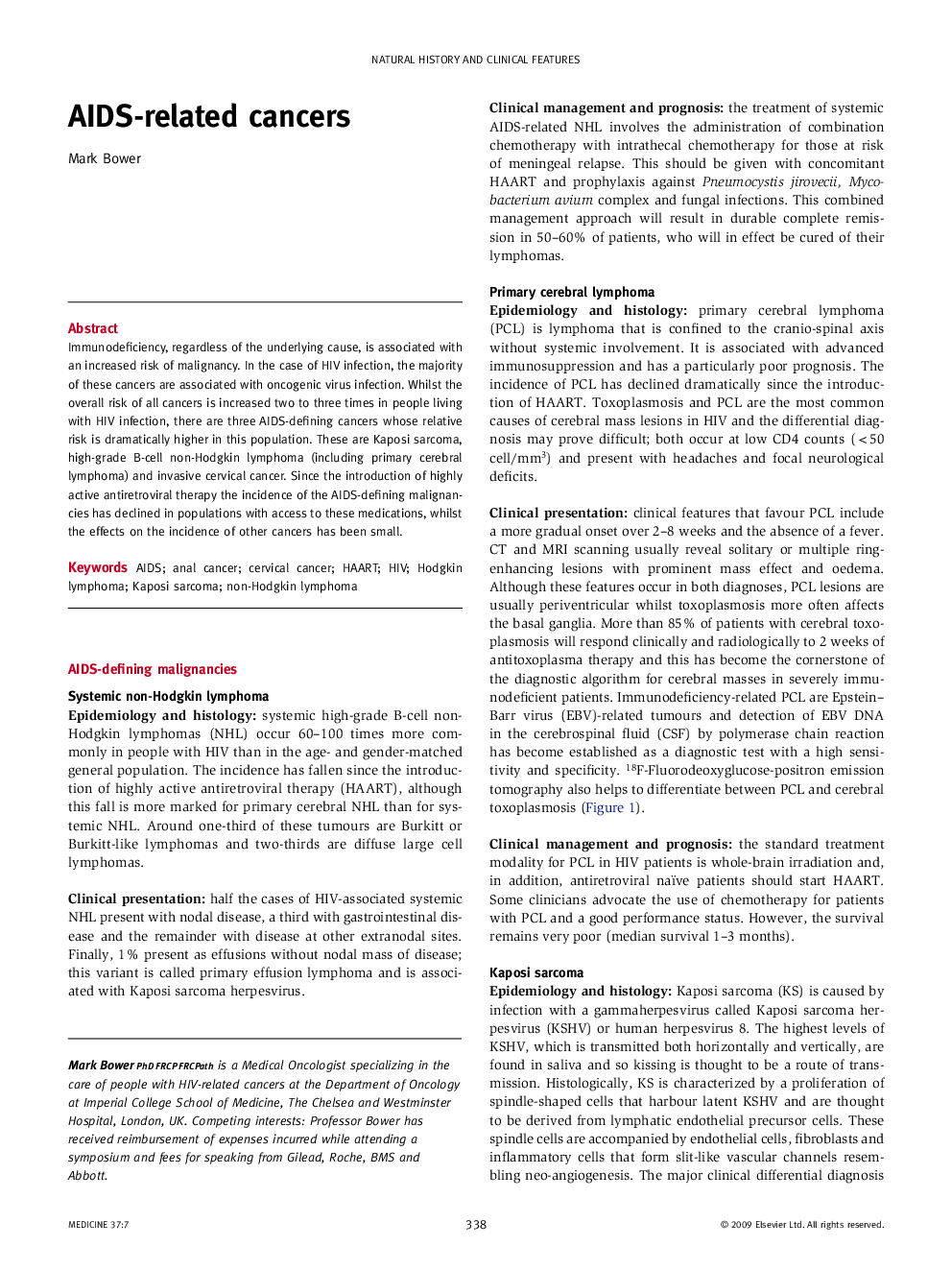| کد مقاله | کد نشریه | سال انتشار | مقاله انگلیسی | نسخه تمام متن |
|---|---|---|---|---|
| 3805368 | 1245179 | 2009 | 4 صفحه PDF | دانلود رایگان |

Immunodeficiency, regardless of the underlying cause, is associated with an increased risk of malignancy. In the case of HIV infection, the majority of these cancers are associated with oncogenic virus infection. Whilst the overall risk of all cancers is increased two to three times in people living with HIV infection, there are three AIDS-defining cancers whose relative risk is dramatically higher in this population. These are Kaposi sarcoma, high-grade B-cell non-Hodgkin lymphoma (including primary cerebral lymphoma) and invasive cervical cancer. Since the introduction of highly active antiretroviral therapy the incidence of the AIDS-defining malignancies has declined in populations with access to these medications, whilst the effects on the incidence of other cancers has been small.
Journal: Medicine - Volume 37, Issue 7, July 2009, Pages 338–341